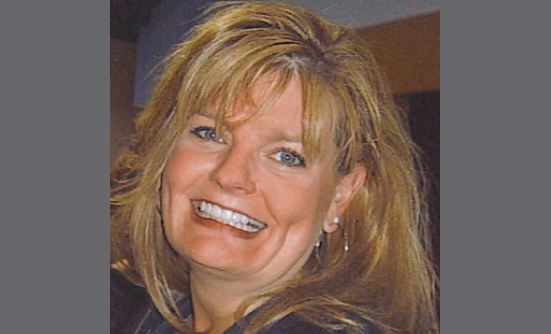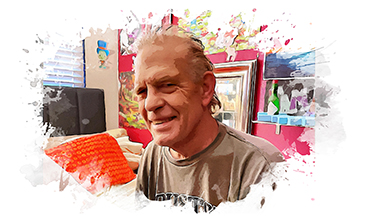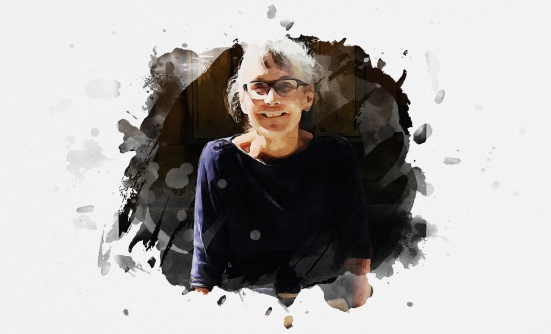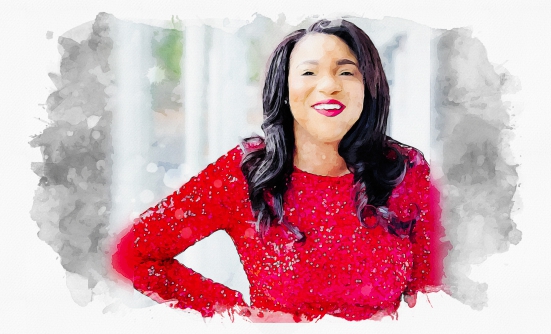Diagnosis
After awaiting the radiologist for several nerve-wracking minutes, he and a nurse came in and said they had found a spot in my left breast. They determined it to be extra-nodal marginal- zone lymphoma, a type of non-Hodgkin lymphoma. He continued to tell us that it is rare to find lymphoma in the breast; therefore, he had 2 other radiologists look at the biopsy, and they all came to the same conclusion.
He then recommended that I see an oncologist right away for further testing. It is shocking to hear, “You have cancer.” Those words will stop anyone in her tracks.
You may be wondering, just as I did, about this type of lymphoma. The specifics of my diagnosis are non-Hodgkin extra-nodal marginal-zone lymphoma, B-cell and indolent. The form I have is mucosa-associated lymphoid tissue (MALT), which is the most common form of marginal-zone lymphoma, and it occurs outside the lymph nodes. MALT makes up about 9% of all B-cell lymphomas, and it is divided into 2 categories—gastric and nongastric. I had the non-gastric type.
Matt was very loving and supportive, and said in no uncertain terms that I am young, otherwise healthy, the strongest person he knew, and that we were going to beat this cancer in the butt. We decided not to tell our 10-year-old son until we had no other choice.
After a week of feeling sorry for myself, crying about my diagnosis, and the cliché of asking, “Why me?” I finally made myself call my oldest sister, Wendy; I knew she would help me find the care I needed. She is a Director of the Cancer Registry Department at a very prestigious hospital and could find the best oncologist in the New Jersey-Pennsylvania area, where I was living at the time. Indeed, she used her resources, and in addition to finding me a great group of oncologists at Penn Medicine, she found me a doctor who was a lymphoma specialist.
I immediately called and made an appointment. Once I accomplished this step, I felt better. This gave me the strength to call and tell my mother, my younger sister, and a few of my best friends; I knew I needed their support and prayers.
Support System
I quickly learned that I was more positive than many of my friends and family were about my diagnosis and potential outcome, and that some friends and family do not know how to respond to the news when you tell them you have cancer, even if they have had cancer themselves. Again, all I wanted was positive thoughts and prayers, and I was clear with these wishes when I told them about my diagnosis.
If you asked my friends and family to describe me, they would say that I’m a “cup halffull” kind of gal. I knew a positive attitude was going to be half of my battle, so I felt that I had half the battle already “in the bag!”
My positive attitude was tested when my circle of support seemed less positive, which made me question and doubt my strength, courage, and potential outcome. I was surprised and it was unsettling. For example, one of my friends told me it was probably the sugar in my diet that caused my cancer (really?).
Another said it was probably the beauty products I used that caused my cancer and suggested using the products she sold (a double “really?”). Another friend wanted to set up a CaringBridge site in my honor (all I could think of is “that is for those in their final days”).
A close family member asked me if what I had was really cancer (as if I was making cancer up for attention—a triple “really?”). I would simply respond with, “What I do know is that my doctors, who practice medicine for a living, don’t know the cause of my cancer, and they are the ones I listen to.”
For the most part, although they behaved as ignorant, I knew they meant well and had no ill will toward me. However, these questions dimmed my already dimming light. Remaining positive was becoming harder and harder with this negative energy I was receiving.
The negative responses I received, albeit only a few in comparison to the positive responses, made me retreat from seeking anything other than “outside” support. This outside support consisted of attending local patient support groups, joining online blogs, and simply educating myself on the disease. I learned from this outside support, which continues to this day, that it is crucial to be your own best advocate.
Staging and Testing
A month before my diagnosis, I had a cyst removed from my right parotid gland (a salivary gland). It was determined to be benign at the time. After my diagnosis, however, my oncologist recalled those slides, and had them tested microscopically, which revealed the presence of lymphoma in my parotid gland, as well.
As a result of this discovery, my oncologist summoned the Tumor Board at the hospital to help determine the cancer stage for appropriate treatment. If it were only in the breast, it would be stage I, but stage IV if the parotid gland was involved.
In addition to this staging conundrum, while I was waiting for the rest of my test results (from colonoscopy, endoscopy, and blood tests), I was asked to find out if my mom had the BRCA gene, since both of my aunts were carriers, and one just had a double mastectomy after her cancer diagnosis. The answer to this would help me to decide if I should get a lumpectomy or a double mastectomy.
Thankfully, my mom found out that she did not have the BRCA gene, and my other tests were clear, so I proceeded with the lumpectomy. No chemo or radiation was necessary after surgery. I was thrilled to be cancer free!
The staging of the cancer was never concluded and remains a question to this day. Nine months later, at my second check-up, and after a set of scans (PET and MRI), I learned that I had an active spot on my temporal lobe (in the brain).
Of the treatment options available (biopsy, radiation, or chemo), I decided to pursue chemotherapy. No biopsy, because I would need radiation or chemo, regardless.
Chemotherapy
On the day of my first chemo treatment, I was feeling scared, alone, cold, and vulnerable in a way I had never experienced before. Then, after I closed my eyes and took a deep breath, I had the distinct feeling of being hugged, and felt that God was present. I felt a deep spiritual connection and knew that I was going to be okay.
That was by far the most impactful moment I experienced during chemotherapy, but I had a few other standout moments. I remember I could never sleep during my actual treatments, because the prednisone dose kept me wired, and the Benadryl dose that makes most sleepy didn’t work for me. I also remember one patient saying to me, “I’ve seen you here now for the past 4 weeks, and you still have your hair.” In an odd way, I felt guilty about that, but also blessed.
Six treatments in, my scans showed that the spot had shrunk, and I reacted well to the treatment. It worked. I didn’t need the biopsy or radiation after all. In addition, after talking to my family and making a hard choice, I elected not to pursue the “chemo maintenance plan” option that my doctor suggested shortly after my last chemo treatment.
Fast forward a few years later, I didn’t need it, and I remain cancer free!
Source of Strength
I learned quickly that my positive attitude was not only going to be half my battle, but it would and did, indeed, help the overall well-being of my family during this time. As my life has progressed since the “C” word, I try to use this positive attitude in everything I do. What a difference it makes, truly!
My cancer experience really sucked, but it also brought so many silver linings. It brought out the warrior in me. It made me so much stronger. It showed me what a great source of strength my son is. It made my marriage stronger, and we are much more humble and grateful.
It showed me that being my own best advocate is key, and I continue that today. It slowed me down, and I enjoy life now more than ever before. It showed me who of my family and friends I can count on, when it really counts.
I learned to forgive. I was reminded of the power of positivity, and to trust my gut instincts. I learned I needed to show my gratitude and appreciation of my experience by giving back. I now volunteer as a Patient and Legislative Advocate with the Leukemia & Lymphoma Society.
The following saying truly sums up my experience: “I had cancer; it didn’t have me!”















